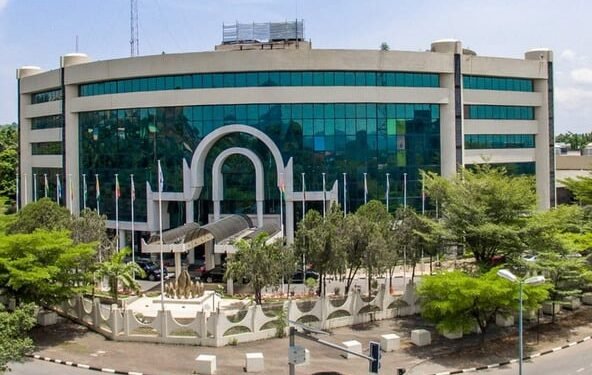
In response to the resurgence of coups since 2019, the African Union (AU) and regional economic blocs have issued sanctions against errant states, predominantly by suspending their membership. But despite an impressive record of taking action, the persistence of coups and other unconstitutional changes of government raises doubts about their effectiveness.
Between June 2019 and August 2023, the AU suspended the memberships of Sudan, Mali, Guinea, Burkina Faso, Niger and most recently Gabon. The regional blocs for West and Central Africa took similar steps against Mali, Guinea, Burkina Faso and Gabon. In 67% of recent coups, the Economic Community of West African States (ECOWAS) also imposed economic sanctions against transgressing states.
To determine whether sanctions work, the motivations for using them are worth considering. AU and regional bloc sanctions aim to change the behaviours of defaulting states and promote democratic norms. The AU, for instance, targets governments that transgress the body’s financial and governance rules or fail to comply with its decisions and policies. Since 2003, the AU has suspended all coup countries except Chad.
ECOWAS sanctions have similar aims, along with creating conditions to restore normal constitutional processes after a breakdown in democracy. The bloc suspended three of the four current coup countries, excluding Niger, and imposed economic and administrative sanctions on all of them. Gabon’s suspension by the Economic Community of Central African States (ECCAS) sought ‘to restore constitutional order swiftly’.
Between 1960 and 2019, the AU consistently implemented sanctions against unconstitutional changes of government and especially coups, with evident success. Two waves of decline were observed owing to a ‘zero tolerance of coups’ policy. From an average of 2.2 coups a year between 1960 and 1989, the number dropped to 1.6 in the 1990s and 0.8 between 2000 and 2019.
However, since 2019, the continent has experienced a resurgence of overthrows. From a low of 0.8, the average number of coups a year in Africa reached 1.8 in 2023. This is likely to increase, given that several African countries are vulnerable to takeovers.
A trend in the current third wave of coups is that sanctions did not prevent repeated overthrows in Sudan, Mali and Burkina Faso. Nor have they deterred the unlawful assumption of power by soldiers in Guinea, Niger, Chad and Gabon. Several of these countries have yet to restore constitutional order or revert to the status quo, meaning coup-makers are driving the transition agendas. The latest example is Mali, where presidential elections planned for February 2004 have been postponed.
It’s clear that sanctions have failed to change behaviour or instil respect for democratic norms. Several factors could explain this.
In previous waves of coups, the AU consistently suspended defaulting states, whereas recently, inconsistencies have crept in. While it promptly suspended Mali, Guinea, Burkina Faso and Gabon, the continental body hesitated to act against Niger even though its Constitutive Act calls for immediate suspension. In Chad, the AU’s response was perplexing as it failed to treat the situation as an unconstitutional change of government, hiding behind security risks.
The AU also kept silent while constitutional manipulations for presidential term extensions occurred in Côte d’Ivoire (2016), Guinea (2020), Gabon (2023), Rwanda (2023) and the Central African Republic (2023). The body’s 2009 Ezulwini Framework on unconstitutional changes of government calls on the AU to deploy preventive missions based on early warning indicators when such events occur.
By not treating the events equally, the AU reinforced a sense of double standards among coup-makers and citizens of countries where constitutional manipulations occurred. This undermined its legitimacy, diluted the deterrent effect of sanctions and fostered defiance among coup plotters in Mali, Guinea and Niger.
ECOWAS, the regional bloc most affected by military overthrows, has issued economic and administrative sanctions against all coup countries in its region. But their effectiveness has been diluted by neighbouring countries’ actions. In Mali’s case, some states expressed reservations about the sanctions and enhanced cooperation with the country’s de facto authorities.
The damaging effects of comprehensive economic sanctions on local livelihoods also limited their chances of succeeding. This fostered widespread aversion to ECOWAS, creating fertile ground for citizens to support the coup plotters in the name of nationalism. Popular rejection of ECOWAS measures in Mali (2020 and 2021), Guinea (2021) and Niger (2023) are examples.
The AU’s Peace and Security Council (PSC) needs to respond robustly to coups. That means addressing all forms of unconstitutional changes of government with equal seriousness and intensity. The Ezulwini Framework must be thoroughly implemented, and the PSC sub-committee on sanctions activated so that measures against defaulting states can be monitored.
The PSC could help ensure consistency and equal treatment in regional bodies’ responses to coups. It should work with the blocs to ensure sanctions are targeted and do not harm the citizens of affected countries. The PSC also needs to secure the support of coup states’ neighbours, to ensure that collective principles and norms are applied rather than individual strategic interests.
Written by Moussa Soumahoro, Researcher, Africa Peace and Security Governance, ISS Addis Ababa.
Republished with permission from ISS Africa. The original article can be found here.










